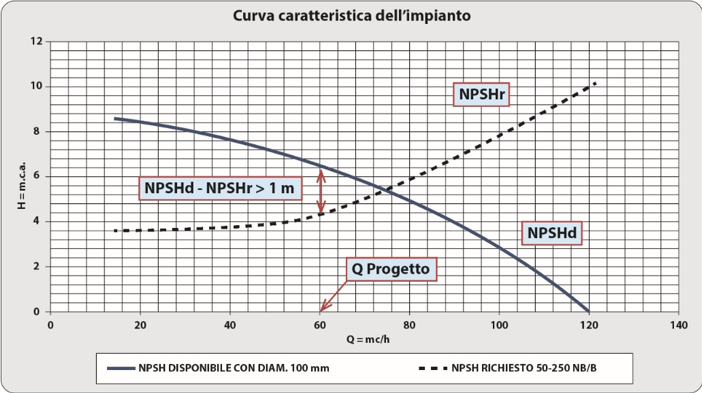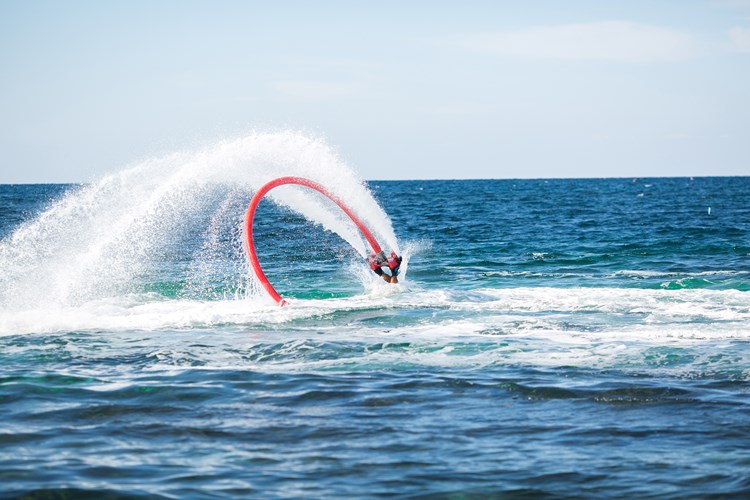Our expert responds #4
QUESTION:
“What does UNI EN 12845 require in relation to NPSH?”
ANSWER:
UNI EN 12845 to avoid the creation of very dangerous cavitation conditions in the suction of the main pumps requires that:
- 10.6.2 – Intake pipe
- 10.6.2.1 – General information
The suction of the pump must be connected to a straight or conical pipe, at least twice the diameter…….
The intake pipe, including all valves and fittings, must be designed to ensure that the NPSH available at the pump inlet exceeds the required NPSH by at least 1 m with the maximum flow rate required and at the maximum water temperature. (10.4 – The water temperature must not be higher than 40° C)
The intake pipes must be placed horizontally or with a continuous slope up towards the pump to prevent the possibility of air pockets forming in the pipe.
NPSH stands for - Net Positive Suction Head.
In Italian it can be defined as "absolute net loading height" and represents the total loading height at the pump inlet, measured with respect to the reference plane, increased by the height corresponding to atmospheric pressure and decreased by the height corresponding to the vapour pressure.
In the case of a horizontal pump, the reference plane passes through the axis of rotation of the pump.
The NPSH value is expressed in metres.
When talking about NPSH, it is necessary to refer to absolute and not relative pressures.
A distinction should be made between:
- Required NPSH which is what the manufacturer requires so as to get a good operation of the pump
- Available NPSH resulting from the installation conditions and to be calculated by the system designer
In order not to manifest the phenomenon of cavitation, UNI EN 12845 requires the following condition to be verified at Q of the project:
NPSHd – NPSHr > 1



